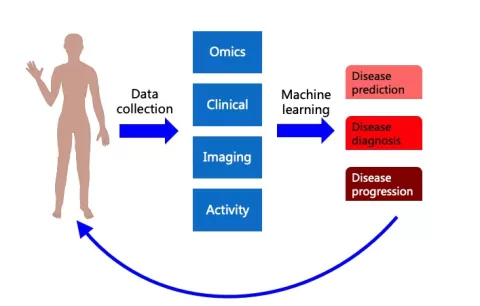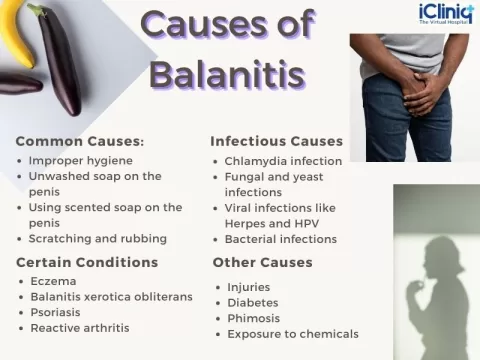Blood test pancreatic cancer is a groundbreaking advancement in the fight against one of the most insidious forms of cancer. Recent research has unveiled a simple blood test that not only aids in pancreatic cancer screening but also holds promise for early detection pancreatic cancer, potentially before it metastasizes. This innovative test could revolutionize the way we approach routine health checks, ultimately contributing to improved survival rates for pancreatic cancer patients. By utilizing this pancreatic cancer blood test, healthcare providers may be able to catch the disease in its earliest stages, where treatment options are more effective. Embracing this technology could significantly enhance the prognosis for those at risk, making early detection a pivotal focus in cancer care.
In the quest to improve outcomes for patients with pancreatic malignancies, a novel blood analysis has emerged as a vital tool for identifying the disease in its nascent stages. Known for its stealthy progression, pancreatic cancer often goes undetected until it has advanced considerably; however, this new testing method aims to change that narrative. By incorporating this straightforward blood assay into routine medical examinations, clinicians can facilitate earlier interventions and potentially enhance the prognosis for affected individuals. The development of this diagnostic approach signifies a crucial step towards increasing awareness and understanding of pancreatic tumors, ultimately leading to better patient management strategies. As the medical community continues to prioritize early diagnostics, the implications for survival rates and treatment success are promising.
Understanding Pancreatic Cancer and Its Implications
Pancreatic cancer is one of the most aggressive and challenging forms of cancer, often diagnosed in later stages due to vague symptoms. The pancreas, situated behind the stomach, plays a crucial role in digestion and blood sugar regulation, making its cancer particularly dangerous. Early detection is vital, as the survival rate for pancreatic cancer remains low, typically around 10% over five years. This highlights the critical need for effective screening methods to identify the disease before it advances.
The implications of a pancreatic cancer diagnosis can be profound, not just for the patient but also for their families and healthcare systems. The late-stage identification of this disease can lead to limited treatment options, emphasizing the necessity for innovative approaches to early detection. With advancements in research, such as the development of a simple blood test, there is hope for improving outcomes significantly, allowing for timely interventions and potentially better survival rates.
The Role of Blood Tests in Pancreatic Cancer Screening
Blood tests are becoming increasingly important in the screening and early detection of pancreatic cancer. Traditional methods, such as imaging scans, can sometimes miss early-stage cancers, while blood tests can detect specific biomarkers associated with the disease. Researchers are focusing on developing reliable blood tests that can identify pancreatic cancer at its inception, which could revolutionize the way we approach screening and diagnosis.
The advent of a simple blood test for pancreatic cancer could mean that more individuals have access to routine screening, leading to earlier detection. This could be particularly beneficial for high-risk groups, such as those with a family history of the disease or genetic predispositions. Early diagnosis through blood tests can significantly improve treatment options and enhance the survival rate for pancreatic cancer patients.
Early Detection of Pancreatic Cancer: A Game Changer
Early detection of pancreatic cancer is crucial for improving patient outcomes. The earlier the disease is identified, the more treatment options are available, which can lead to better survival rates. With the development of new blood tests, there is an opportunity to detect pancreatic cancer before it has metastasized, allowing for more effective interventions. This shift towards early detection is a game changer in the fight against pancreatic cancer.
Furthermore, the implementation of routine pancreatic cancer screening using blood tests could lead to a reduction in the number of patients diagnosed at advanced stages. By identifying the disease earlier, healthcare providers can initiate treatment sooner, ultimately improving the odds of survival. Such advancements in screening technology represent a significant step forward in addressing one of the most lethal forms of cancer.
The Impact of Simple Blood Tests on Pancreatic Cancer Survival Rates
The introduction of simple blood tests for pancreatic cancer can significantly impact survival rates. By enabling earlier diagnosis, these tests can help initiate treatment at a stage when the disease is more manageable. As research continues to validate the effectiveness of these blood tests, the potential for improved outcomes becomes increasingly evident. Studies suggest that early-stage pancreatic cancer has a much higher survival rate compared to late-stage diagnoses.
Additionally, the simplicity of a blood test makes it more accessible for widespread screening. This accessibility could encourage more individuals to participate in routine checks, especially those at higher risk. As more patients are diagnosed in the earlier stages of the disease, we can expect to see a gradual improvement in survival rates and overall treatment success for pancreatic cancer.
Advancements in Pancreatic Cancer Blood Tests
Recent advancements in blood tests for pancreatic cancer have opened up new avenues for research and clinical application. Scientists are identifying specific biomarkers that can indicate the presence of cancerous cells in the pancreas. These developments are promising, as they could lead to the creation of highly sensitive blood tests that not only detect pancreatic cancer but also differentiate between its various stages.
Such advancements could transform the landscape of pancreatic cancer screening and diagnosis. By providing healthcare professionals with effective tools to detect the disease earlier, we can hope to see a significant impact on treatment efficacy and patient survival rates. Continuous research in this area is essential for refining these blood tests and making them a standard part of routine cancer screening.
Pancreatic Cancer Screening Protocols and Best Practices
Establishing effective screening protocols for pancreatic cancer is essential to improve early detection rates. Healthcare professionals are increasingly recognizing the importance of integrating blood tests into routine examination, especially for patients who present with risk factors. Best practices involve a comprehensive approach that includes both blood tests and other diagnostic tools, such as imaging techniques, to ensure accurate detection.
Moreover, educating patients about the signs and symptoms of pancreatic cancer is crucial for fostering proactive health management. By encouraging individuals, particularly those with a family history or genetic predispositions, to undergo regular screenings, we can enhance the likelihood of early detection and improve overall outcomes. Protocols that emphasize early intervention could lead to significant advancements in the fight against pancreatic cancer.
Future Directions in Pancreatic Cancer Research
The future of pancreatic cancer research is promising, particularly with the focus on developing more effective blood tests. Researchers are continually exploring new biomarkers that could enhance the accuracy of pancreatic cancer detection. As our understanding of the molecular underpinnings of this disease evolves, the potential for innovative screening tools increases, which could revolutionize patient care.
In addition to blood tests, the integration of artificial intelligence and machine learning in analyzing test results holds great potential. These technologies can identify patterns and improve diagnostic accuracy, making early detection more feasible. As research progresses, we can anticipate more breakthroughs that will not only aid in the early detection of pancreatic cancer but also contribute to more personalized treatment strategies.
The Importance of Awareness and Education in Pancreatic Cancer
Raising awareness about pancreatic cancer and the importance of early detection is vital for improving patient outcomes. Many individuals are unaware of the risk factors and symptoms associated with this aggressive cancer. Educational campaigns can empower people to seek medical advice sooner, particularly if they exhibit warning signs or have a family history of the disease.
Moreover, increasing public knowledge about the availability of simple blood tests for pancreatic cancer screening can encourage routine check-ups. This proactive approach can lead to earlier diagnoses and ultimately save lives. Health organizations and advocates play a critical role in driving this movement forward, ensuring that pancreatic cancer awareness remains a priority in public health discussions.
Lifestyle Factors and Their Influence on Pancreatic Cancer Risk
Lifestyle factors significantly influence the risk of developing pancreatic cancer. Obesity, smoking, and a diet high in processed foods are well-documented risk factors. Understanding these associations can help individuals make informed decisions about their health, potentially reducing their risk of this deadly disease.
Incorporating healthy lifestyle changes, such as maintaining a balanced diet and engaging in regular physical activity, can contribute to lowering the risk of pancreatic cancer. Public health initiatives that promote healthy living are essential in combating this disease and can complement advancements in screening and detection methods to improve overall cancer outcomes.
Frequently Asked Questions
What is the role of a blood test in pancreatic cancer screening?
A blood test for pancreatic cancer screening can help identify markers associated with the disease, allowing for early detection pancreatic cancer before it progresses. This could significantly improve patient outcomes by enabling timely treatment.
How does a pancreatic cancer blood test improve early detection?
The pancreatic cancer blood test is designed to detect specific biomarkers that indicate the presence of cancer, thus facilitating early detection pancreatic cancer. This is crucial as early diagnosis can lead to better treatment options and higher survival rates.
What are the benefits of using a simple blood test for pancreatic cancer detection?
Using a simple blood test for pancreatic cancer detection offers several benefits, including less invasive testing, the potential for routine screening, and improved chances of early detection pancreatic cancer, which is essential for enhancing the survival rate pancreatic cancer.
Can a blood test replace traditional imaging methods in pancreatic cancer screening?
While a blood test for pancreatic cancer is promising, it is not yet a complete replacement for traditional imaging methods. However, it can complement these methods by providing additional information for earlier detection and improving outcomes.
What advancements have been made in pancreatic cancer blood tests?
Recent advancements in pancreatic cancer blood tests focus on identifying specific biomarkers that signal the presence of cancer, allowing for more accurate early detection pancreatic cancer and potentially improving the overall survival rate pancreatic cancer.
How often should I get screened for pancreatic cancer using a blood test?
The frequency of pancreatic cancer screening using a blood test depends on individual risk factors. It is advisable to consult with a healthcare provider to determine the appropriate screening schedule, especially for those at higher risk.
What is the current survival rate for pancreatic cancer and how does early detection impact it?
The survival rate pancreatic cancer remains low due to late-stage diagnoses. However, early detection through methods like blood tests can significantly enhance treatment options and improve survival rates.
Are there any risks associated with the pancreatic cancer blood test?
The pancreatic cancer blood test is generally low-risk as it is a simple blood draw. However, it is important to discuss any potential risks and limitations with a healthcare provider before undergoing testing.
What should I do if my pancreatic cancer blood test results are abnormal?
If your pancreatic cancer blood test results are abnormal, it is crucial to follow up with your healthcare provider for further evaluation, which may include additional testing or imaging to confirm a diagnosis.
Is the simple blood test for pancreatic cancer available to everyone?
The availability of the simple blood test for pancreatic cancer may vary by location and healthcare provider. Check with local medical facilities to see if they offer this testing as part of their screening programs.
| Key Point | Details |
|---|---|
| Blood Test Development | Researchers have created a new blood test specifically for detecting pancreatic cancer. |
| Early Detection | The test aims to identify pancreatic cancer before it has spread throughout the body. |
| Routine Screening | This blood test could be utilized as part of routine screenings for better detection rates. |
| Survival Rate Improvement | The test is designed to enhance the low survival rates associated with pancreatic cancer. |
Summary
A blood test for pancreatic cancer represents a significant advancement in medical diagnostics. This innovative blood test aims to detect pancreatic cancer at an early stage, before it has the chance to spread, potentially saving lives. By integrating this blood test into routine screenings, healthcare providers can improve early detection rates, which is crucial given the historically low survival rates associated with pancreatic cancer. Overall, this development holds promise for better management and outcomes for patients at risk.
The content provided on this blog (e.g., symptom descriptions, health tips, or general advice) is for informational purposes only and is not a substitute for professional medical advice, diagnosis, or treatment. Always seek the guidance of your physician or other qualified healthcare provider with any questions you may have regarding a medical condition. Never disregard professional medical advice or delay seeking it because of something you have read on this website. If you believe you may have a medical emergency, call your doctor or emergency services immediately. Reliance on any information provided by this blog is solely at your own risk.








